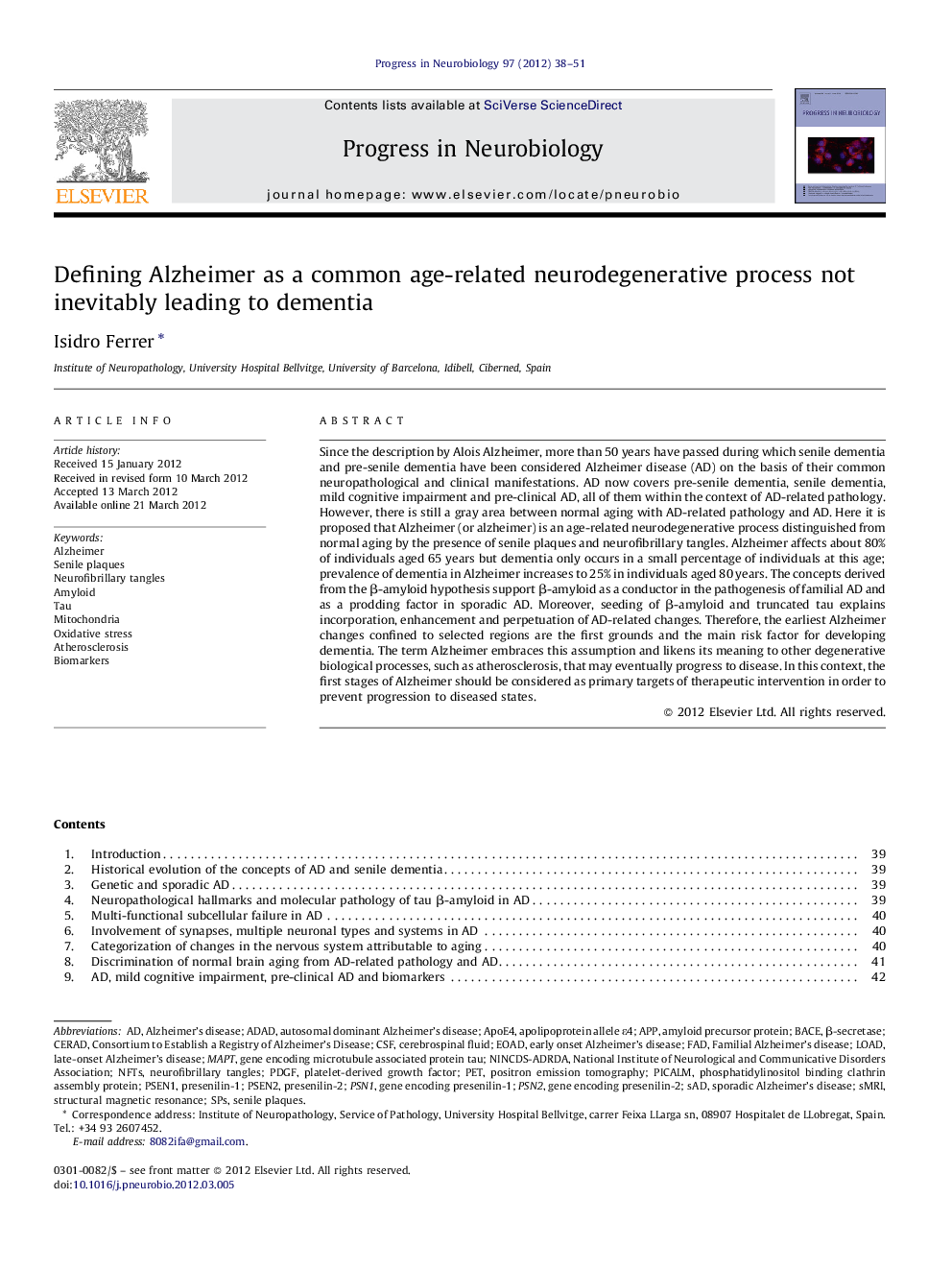| Article ID | Journal | Published Year | Pages | File Type |
|---|---|---|---|---|
| 4353480 | Progress in Neurobiology | 2012 | 14 Pages |
Since the description by Alois Alzheimer, more than 50 years have passed during which senile dementia and pre-senile dementia have been considered Alzheimer disease (AD) on the basis of their common neuropathological and clinical manifestations. AD now covers pre-senile dementia, senile dementia, mild cognitive impairment and pre-clinical AD, all of them within the context of AD-related pathology. However, there is still a gray area between normal aging with AD-related pathology and AD. Here it is proposed that Alzheimer (or alzheimer) is an age-related neurodegenerative process distinguished from normal aging by the presence of senile plaques and neurofibrillary tangles. Alzheimer affects about 80% of individuals aged 65 years but dementia only occurs in a small percentage of individuals at this age; prevalence of dementia in Alzheimer increases to 25% in individuals aged 80 years. The concepts derived from the β-amyloid hypothesis support β-amyloid as a conductor in the pathogenesis of familial AD and as a prodding factor in sporadic AD. Moreover, seeding of β-amyloid and truncated tau explains incorporation, enhancement and perpetuation of AD-related changes. Therefore, the earliest Alzheimer changes confined to selected regions are the first grounds and the main risk factor for developing dementia. The term Alzheimer embraces this assumption and likens its meaning to other degenerative biological processes, such as atherosclerosis, that may eventually progress to disease. In this context, the first stages of Alzheimer should be considered as primary targets of therapeutic intervention in order to prevent progression to diseased states.
► Alzheimer is a multifactorial age-related neurodegenerative biological process. ► Alzheimer is distinct of normal aging by presence of neurofibrillary tangles and senile plaques. ► Alzheimer has capacities of seeding and spreading of lesions which may lead to dementia. ► Early Alzheimer changes confined to selected regions are the first grounds and the main risk factor for developing dementia. ► Early stages of Alzheimer should be considered as primary targets of therapeutic intervention in order to prevent progression to disease states.
